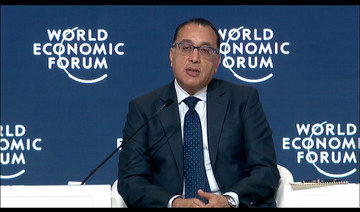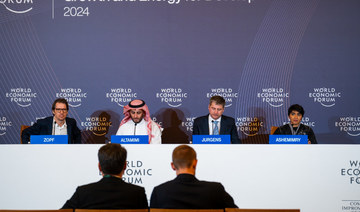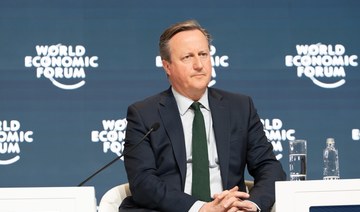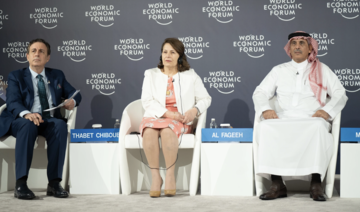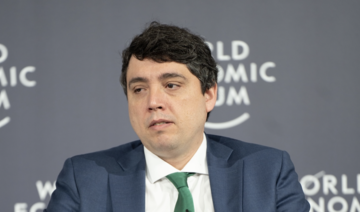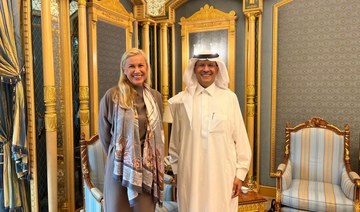LONDON: Lloyd’s of London is reviewing all aspects of its business, including its centuries-old structure, to ensure it is cost-competitive and responsive to both clients and members, especially after Britain leaves the EU, industry sources said.
The review, coming after a £2-billion ($2.64-billion) loss last year and the news in June that CEO Inga Beale will step down, goes to the core of the institution’s hybrid personality, senior insurers and other officials in London’s financial services sector said.
Lloyd’s has been holding board and other internal meetings and separate discussions with broader market participants on the best way forward, the officials said. Precize details of the review have not been disclosed, they said.
“A strategic review is being worked on,” said one financial services source, asking not to be named because he was not authorized to discuss it. Another source, a senior executive at a firm that supplies services to Lloyd’s members, said he understood that included looking at its unique structure.
“The most fundamental question is, what does Lloyd’s actually want to be?” the executive said.
At present, Lloyd’s is both a marketplace for its 80-plus syndicated members and an umbrella body that sometimes acts like an insurer by getting deeply involved in members’ day-to-day practices. It also regulates the members under the auspices of the UK government.
Asked whether Lloyd’s was conducting a strategic review, Chairman Bruce Carnegie-Brown told Reuters on Monday he would not use that term.
“To me a strategic review implies some kind of crisis, where you’ve got to put everything into a big hat and end up boiling the ocean. We are not interested in that. What I think we have is a series of improvements and ideas,” he said in a telephone interview.
He said Lloyd’s was looking at all aspects of the business, however — cost structure, technology, its role as a marketplace and a regulator, and how it mutualizes risk. He said recommendations from an “annual strategy day” in June were presented to the board last week and a number of “workstreams” were being set up.
“I think what we need to do is to look at all aspects of what we do, to try to make sure everything we are doing is done better and turn it into more of an exercise to keep turning the stones over of the things that we do to figure out if we can make things more efficient,” he said.
Carnegie-Brown said he did not see Lloyd’s relinquishing its regulatory duties but said there were “whole aspects of regulation that we need to look at to make sure that we are not duplicating what is already done by other regulators.”
If Lloyd’s was a pure marketplace, member syndicates could be more innovative, accommodating short-term losses for future gains, industry sources said. Doing so would risk Lloyd’s losing the single-A credit rating that benefits all members, however.
“If it’s a marketplace, it’s for each party to come to the market, it’s for them to work out what they want to offer,” the senior executive said, while an insurer would incorporate the individual groups operating within it to form a company.
“I do not think it is being crystal clear which one it is, or wants to be.”
The UK government is keen that Britain, the world’s largest commercial insurance center, remains competitive in financial services after Brexit. Lloyd’s is setting up a subsidiary in Brussels to maintain access to Europe’s single market.
“Lloyd’s needs to ensure that London keeps its edge in insurance, which is vital for the wider financial future of London,” the financial services source said.
Lloyd’s started life in Edward Lloyd’s coffee house in 1688. The futuristic look of its 14-story headquarters in the City belies an emphasis on customs and tradition.
Most business is still conducted face to face. Underwriters and brokers use briefcases or suitcases to carry paperwork around the building; some marine insurers record the sinking of ships with quill pens. The requirement for men to wear ties was relaxed only recently.
The market was almost brought to its knees by asbestos-related claims in the 1990s, which wiped out many of its individual investors, known as “names.”
Members include small underwriters as well as listed UK firms like Beazley and Hiscox and units of global insurers, specializing in complex commercial risks such as marine, aviation and niche energy markets.
Julia Graham, deputy chief executive at insurance buyers’ association Airmic, said Lloyd’s has set up a working group with her client organization to discuss improving their relationship. She said Airmic regularly met Lloyd’s at board level but that a meeting this month was “a bit more intimate.”
“The main point is that they asked us,” she said. “Lloyd’s is still a leader. It’s important that it remains relevant.”
Last year’s two-billion-pound loss, the first in six years, followed a record year of insurance losses from natural disasters globally. London also faces competition from rivals like Bermuda and Singapore.
Lloyd’s will be looking at ways to cut members’ costs, which have ballooned as a result of increasing regulatory and compliance paperwork and rising commissions from brokers, industry sources said. The high costs of operating from London and administrative expenses have also weighed, they said.
A new electronic processing system introduced by Beale, the first female chief executive of Lloyd’s, was unpopular with smaller brokers and underwriters.
“If you are pushing it through an electronic system, there will be little scope for enhancements or individual treatment, which is what a lot of people come to Lloyd’s for,” said industry veteran Andrew Bathurst, director of London and Dubai insurance broker PWS Gulf and a director of Mystic Capital.
Whether to continue implementing the new system at the current pace — 30 percent of all business this year rising to 80 percent next year — is likely to be part of the review, two insurance sources said.
Lloyd’s insurers have an expense ratio of 40 percent, according to ratings agency AM Best, which Paul Merrey, a partner specializing in insurance at KPMG, said is about 10 percentage points higher than competitors.
“The costs of operating are getting out of hand” due to increased regulation, said one senior underwriting source. He agreed the biggest question mark was over structure, however: “What is Lloyd’s? Is it a market or is it an insurer?”
Lloyd’s of London reviews operations after losing $2.6 billion
Lloyd’s of London reviews operations after losing $2.6 billion
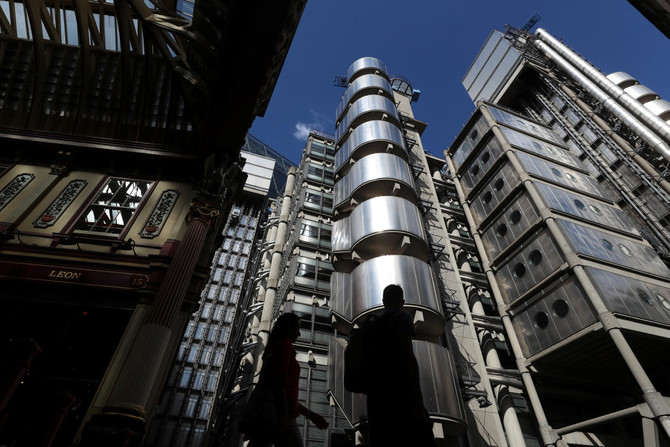
- Lloyd’s plans number of “workstreams”
- Issues include costs of doing business, use of technology
Global collaborations crucial to address global challenges, says Saudi official
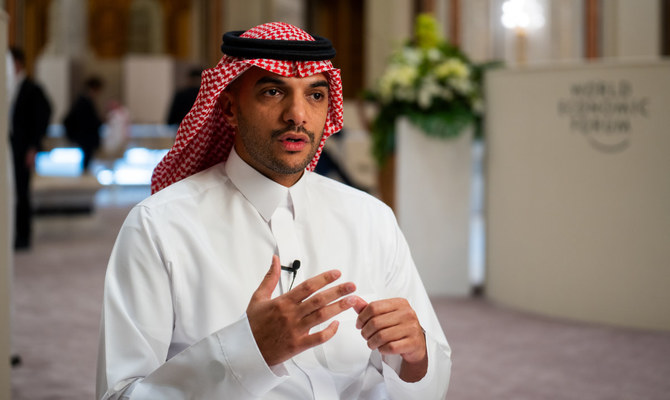
- Ammar Nagadi, vice minister of economy and planning, talks to Arab News on the sidelines of World Economic Forum Special Meeting in Riyadh
RIYADH: Global collaborations are a crucial element in efforts to tackle economic and social challenges, especially given the current state of the world, a leading Saudi official said.
In an interview with Arab News on the sidelines of the two-day World Economic Forum Special Meeting on Global Collaboration, Growth and Energy for Development, which concluded on Monday in Riyadh, the Kingdom’s vice minister of economy and planning, Ammar Nagadi, spoke about the important role such gatherings can play in advancing economic cooperation to address global challenges.
He believes the world is going through a “unique” time, with economic and social challenges worldwide and human development at a critical stage.
“Because of this, global collaboration and the world convening together becomes more and more important,” Nagadi said.
“We have seen that over the last few years Saudi Arabia is becoming a platform that brings together different people from different parts of the world to discuss challenges and to address these challenges” and the World Economic Forum special meeting is a continuation of that process, he added.
“We have more than 1,000 leaders today from different sectors (attending the meeting). We have heads of states, private sector and public sector leaders, and entrepreneurs from more than 70 countries across the globe.
“I think this diverse group, coming together to discuss and address global challenges is a unique opportunity and we are very happy to have it here in Riyadh today.”
Describing the economic landscape in the Kingdom, Nagadi said the Saudi economy is going through a very strong period of transformation that is reflected in the progress the country has made in terms of growth and diversification.
“Last year, Saudi Arabia’s non-oil activities grew by 4.4 per cent but I think the most important thing to realize is that non-oil activities, as a percentage of total gross domestic product, have reached, for the first time in history, 50 percent of the total GDP,” he added.
This represents a significant milestone that reaffirms the progress made in efforts to diversify the national economy, he added, which have created numerous benefits, including investment opportunities and improved job prospects for Saudis.
“If I take one example, you will see that unemployment last year in the last quarter has reached an all-time low of 7.7 per cent and we hope to see that momentum continuing,” Nagadi said.
He believes this momentum will also continue in terms of growth and diversification.
“We target to grow around 5 per cent for non-oil activities this year but we have seen recent forecasts by the IMF (International Monetary Fund) where they’re expecting Saudi Arabia to further grow in 2025 by around 6 per cent,” he added.
Saudi Arabia is also making progress toward achieving sustainability goals, which Nagadi said is another important topic.
“What we have today is Vision 2030, which is very ambitious, and sustainability is an integral part of that vision,” he added.
“We have economic goals, social goals, environmental goals. If I were just to take the environmental part of the sustainable development goals, you will see that Saudi has put in a lot of efforts as part of Vision 2030.”
The Saudi Green Initiative, announced in March 2021, is a great example of what the Kingdom is doing not only to drive economic growth but also protect the planet, Nagadi said.
“The aim is to achieve net-zero emissions by 2060, and the goals are to increase the renewable energy mix to 50 percent of the total energy mix and plant 10 billion trees by 2030 as well as protecting land and sea,” he said, adding that 50 million trees have already been planted.
Saudi-UK economic symphony hits high note with Vision 2030, Lord Mayor of City of London tells Arab News
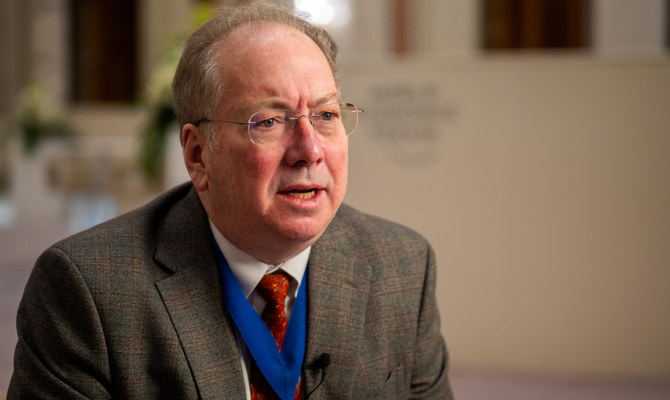
- Michael Mainelli: ‘With the amazing changes under Vision 2030, we’re anticipating yet more investment both ways’
RIYADH: Business and investment between Saudi Arabia and the UK are flourishing under the “amazing” Vision 2030 reform plan, with expectations for further collaborations on the horizon, the Lord Mayor of the City of London told Arab News in Riyadh.
Michael Mainelli said of the business and investment connections between Saudi Arabia and the City of London: “The Gulf is our fourth-largest trading partner with about £65 billion ($81.47 billion) in trade every year, and Saudi is the largest chunk of that to well over £17 billion, so trade is very good.”
Saudi investment in the City of London has always been “very, very strong, and British investment in Saudi has also been strong. I don’t think there’s anything other than growth, and with the amazing changes under Vision 2030, we’re anticipating yet more investment both ways,” he added.
“The great thing about Vision 2030 is that it’s almost like a pyramid, with the entire nation working together towards a whole series of goals.”
The UK is “the world’s premier professional financial services sector, so there will always be opportunities for us to collaborate with Saudi Arabia” in this field, Mainelli said. “I think less appreciated is our recognition of Saudi intellect.”
He said he is “trying to make connections” in Riyadh, adding that Saudi academia, science, technology and research “are growing very well.”
Mainelli outlined three main avenues of Saudi investment in the City of London: property development, operational businesses, and science and technology. He added that Saudis are also investing in areas such as media distribution and packaging.
“I’m looking forward to a tremendous amount of Saudi investment in science and technology, particularly in areas like hydrogen, where Saudi Arabia is very strong, as well as in desalination and biotech,” he said.
Emphasizing initiatives aimed at bolstering economic cooperation between Saudi Arabia and the UK, he said: “The British government is hosting a two-day conference here in Riyadh from May 14 to 15. We’re bringing over about 400 to 500 British firms to look at areas where they’re looking at technology.
“Equally, in June we have our Net Zero Delivery Summit, where Saudi Arabia will be present, and on June 24 the UK-Saudi infrastructure meeting, where we’ll discuss infrastructure projects both ways.”
Providing insight on how the UK can further strengthen economic relations with Saudi Arabia, especially after having left the EU, Mainelli said: “The Brexit vote was over eight years ago, and in the City of London we’ve grown from 525,000 workers to 615,000 workers — a net gain of 90,000.
“Also, assets under management globally have increased from just over 12 percent to about 15 percent of global assets. So the City of London has been doing very well post-Brexit.”
Mainelli highlighted the value of conferences such as the World Economic Forum in Riyadh, which he attended, as catalysts for business deals, often beginning with conversations between individuals.
“It’s great to have this event. It focuses very much on cooperation, particularly in the energy sphere, which is fundamental to economic growth,” he said.
“Britain is a petrostate in its own right, not as strong as Saudi Arabia. Both countries have to work on what’s their energy transition going to be in a net zero world.”
Besides geopolitical tensions, trade restrictions pose significant barriers to global collaboration, Mainelli said.
“These are present in both goods and services, particularly in professional services, and the way to address them … is through standards. These are ISO (International Organization for Standardization) standards, which I’m promoting for artificial intelligence and space sustainability, for example,” he added.
“These are mutual recognition standards for professionals working, so a Saudi accountant could work in Britain and vice versa, and similarly for lawyers etc.
“The third area concerns governance standards and how organizations are managed. So I believe probably the biggest thing to constantly work at is standards.”
Mainelli stressed the need to address geopolitical tensions, “but as a business community we’re not deeply involved in those negotiations, decisions or military actions, so it’s important for us to understand how we should be reacting to and how we can support peace through trade.”
Global ‘Center for Space Futures’ announced at World Economic Forum
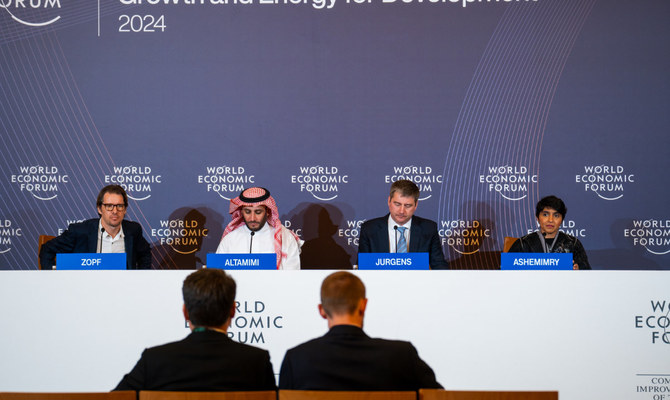
- The center aims to facilitate public-private discussions on space collaboration, incorporating best practices from the WEF and its communities into the global space sector
RIYADH: The World Economic Forum and the Saudi Space Agency signed an agreement to establish the Center for Space Futures, a Centre for the Fourth Industrial Revolution.
Hosted by the SSA, the center is expected to open later this year and will be the first in the C4IR network to focus exclusively on space. It will operate alongside the existing national center, C4IR Saudi Arabia, to advance Saudi Vision 2030.
Jeremy Jurgens, the WEF managing director, told Arab News: “Historically, many people assume that space is the exclusive domain of a few countries that have a fully integrated space technology stack. What we’ve seen over the last few years is that space is something that should be available to the whole globe.
“By launching the Center for Space Futures here in Saudi Arabia, we’re actually demonstrating that space is something for all humanity, and that we can actually unlock those benefits and use them anywhere and everywhere.”
The center aims to facilitate public-private discussions on space collaboration, incorporating best practices from the WEF and its communities into the global space sector, and generating contributions to accelerate space technologies.
Dr. Mohammed Al-Tamimi, CEO of the SSA, told Arab News: “This center is part of a global platform that will engage everyone to make sure that we’ll be activating public and private discussions, especially in this era.” As the world experiences a shift from a government-centered space sector to a private-centric sector, Al-Tamimi said that the center offers “great potential to collaborate and engage more with the private sector and government initiatives.”
The officials said they are committed to harnessing the vast opportunities of the space industry and creating a sustainable economy globally through best practices, governance, policies, innovation and valuable technologies to encourage further cross-sector engagement.
Mishaal Ashemimry, managing director of the Center for Space Futures, told Arab News: “Space generally has seen no boundaries when it comes to development, and you need the input of international countries with their expertise, their backgrounds, their achievements in space, to work together, whether it’s towards a mission or achieving governance policies … Space cannot move forward without international collaboration.”
The center will join 19 others that make up the C4IR network, a platform for multistakeholder collaboration, bringing together public and private sectors to maximize technological benefits to society while minimizing the risks.
The WEF launched the first C4IR in San Francisco in 2017, followed soon after by others in Japan and India. The network now includes the Centre for Trustworthy Technology, in Austin, the US Centre for Advanced Manufacturing, in Detroit, Germany’s Global Government Technology Centre, Norway’s HUB Ocean, and others in Rwanda, Saudi Arabia, Serbia, South Africa, India, Turkiye and the UAE.
Saudi Arabia likely to meet tourism targets ahead of 2030, says top official
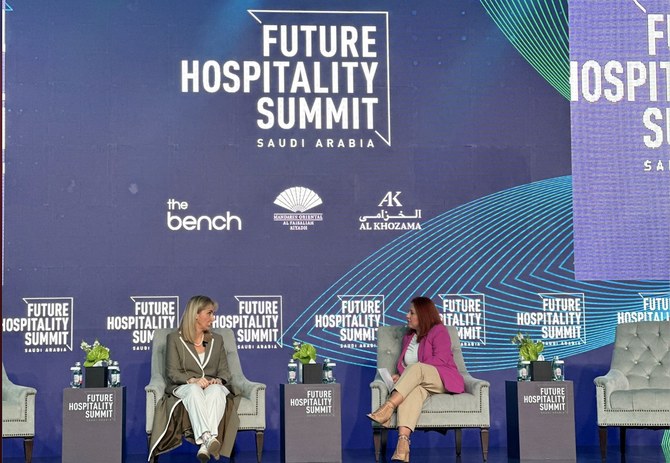
RIYADH: Based on Saudi Arabia’s extraordinary achievements in the tourism sector, the Kingdom is likely to achieve its targets ahead of 2030, said a top tourism official.
During a panel at the Future Hospitality Summit held in Riyadh, Gloria Manzo, chief special adviser at the Ministry of Tourism, likened Saudi Arabia’s approach toward the development of the sector to the private sector with clear goals with key performance indicators reviewed quarterly.
She added: “We have goals, we have quarterly meetings that review our KPIs quarterly. You better be on the plan and if not, you have to explain why, so most likely it will achieve those numbers, before 2030. Absolutely!.”
Manzo noted that increasing the target indicates that Saudi Arabia is progressing faster than expected, which reflects a positive momentum in achieving tourism goals.
She said for Saudi Arabia “the sky is the limit.” The development process in the Kingdom, she added, is supported by unprecedented levels of government investment.
“What the government is doing in this country, there’s no other example in the world. I have never seen something like this in my 30 years of career,” the official said.
She also highlighted challenges facing the tourism sector such as geopolitical issues and weather-related crises, which can disrupt operations.
The official identified the development of human resources for the sector as a challenge for which the government is taking several measures.
“We wish we could do that faster. The ministry is training Saudis abroad. We announced a (training) academy. We’re partnering with universities here. That is very important, but it will be wonderful if we can train them faster. The private sector is also helping us to train these Saudis,” she said.
Manzo also expressed optimism about more Saudi women joining the tourism industry.
The official said interestingly the Saudi government “moves faster than the private sector” unlike any other country in the world where the latter tends to act quicker. She said small and medium enterprises require more support to keep pace with the ongoing development in the sector.
“I would say the SMEs need more support, and of course, we wish we can support them so that they can accelerate in this transition,” Manzo added.
“We’re working with them. We have a plan and the ecosystem is very structured,” the tourism official said.
Saudi chemicals giant SABIC targeting net zero by 2050, CEO says
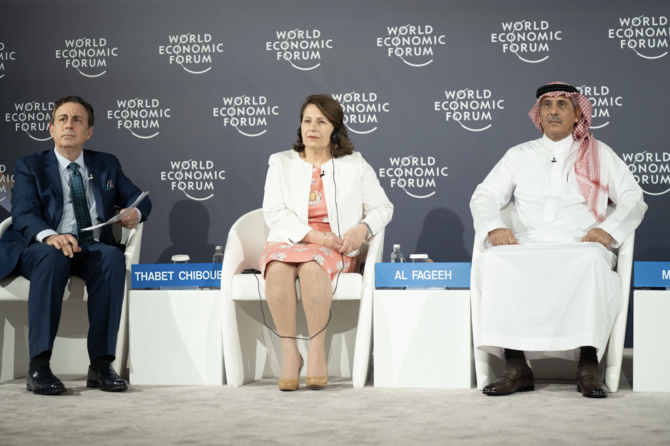
- SABIC aims to convert 1 million tons of waste into feedstock for the petrochemical industry by 2030, Al-Fageeh said
RIYADH: Saudi Arabia’s top chemicals company is turning to circular economy solutions to reach carbon neutrality by 2050 and advance the Kingdom’s net-zero agenda, its CEO has said.
Abdulrahman Al-Fageeh, CEO of the Saudi Basic Industries Corporation, was speaking at the “Demand for Energy ... Transforming Costs into Gains” panel during the special meeting of the World Economic Forum in Riyadh.
SABIC aims to convert 1 million tons of waste into feedstock for the petrochemical industry by 2030, he said.
The circular carbon economy has helped the chemicals sector expand its investment horizon since 2020, he added.
Al-Fageeh said that SABIC marked achievements in energy efficiency and reduced its carbon footprint at the end of 2023 by 12.74 percent. The company is targeting carbon neutrality by 2050.
SABIC has also adopted alternative energy from plastic waste, seeking to produce 1 million tons of sustainably sourced chemicals by 2030.
Energy efficiency
Al-Fageeh said that his company had started sustainability programs at an early stage, improved reliability, developed 90 initiatives and projects, and closed a number of sites due to ineffectiveness.
In 2023, SABIC had more than 200 patents, 40 percent of which related to sustainability in energy efficiency.




